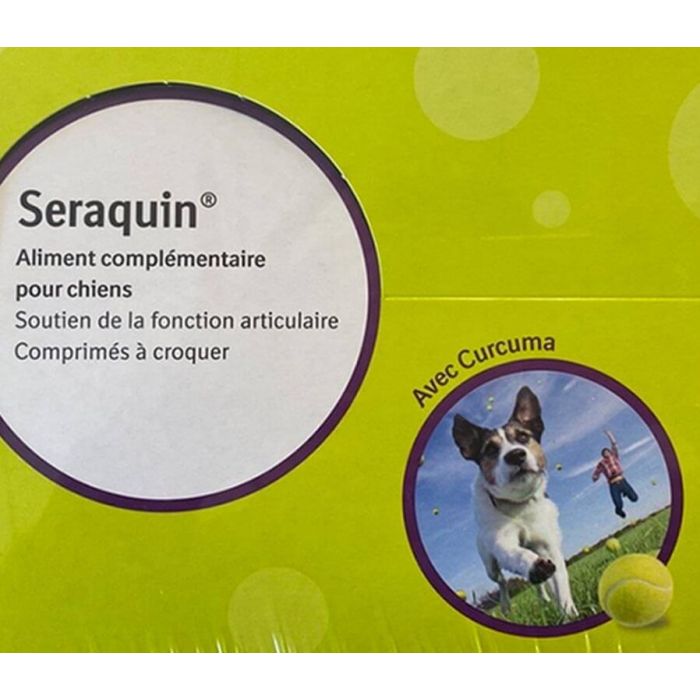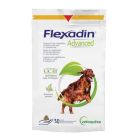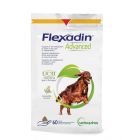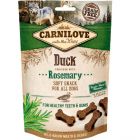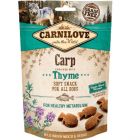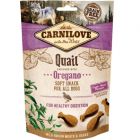-
Home
-
Seraquin Joint Supplement Tablets for Large Dogs (pack of 60)
Seraquin Joint Supplement Tablets for Large Dogs (pack of 60)
| Brand | Seraquin |
| Manufacturer | Boehringer |
| Species | Dog |
Seraquin is a palatable, chewable tablet that contains ingredients specifically selected for joint protection and health.
It is easy to give and can form part of your pet's diet for the rest of his/her life. Seraquin can be given alongside any other prescription medications your vet has recommended.
SERAQUIN is a joint supplement containing Glucosamine and Chondroitin. These ingredients occur naturally in the body, as part of the make-up of cartilage.
What makes Seraquin special is the inclusion of curcuminoids, which are potent natural antioxidants.
Curcuminoids may help to mop up free radicals in the joint which contribute to degeneration of the cartilage.
Being so palatable, Seraquin is easy to give. Most dogs love Seraquin chewable tablets and will take the tablet willingly from the hand. You can give them as a treat or crush them onto their normal food.
Seraquin can be given alongside any prescription medicines that your vet may recommend to help in the control of pain and inflammation.
Glucosamine hydrochloride 500mg
Chondroitin sulfate 380 mg
Standardized curcumin extract 50 mg
Other components (dried yeast, sucrose, hydrolysed chicken protein, glucose, protein maize)
Additive: calcium stearate (E470) q.s. 1 tab 2 g
Initial usage (4-6 weeks or as recommended by a veterinary surgeon)
| Dogs up to 10 kg | 1 tablet daily |
| Dogs from 10 to 20 kg | 2 tablets per day |
| Dogs from 20 to 40 kg | 3 tablets per day |
| Dogs over 40 kg | 4 tablets per day |
Maintenance dose
| Dogs up to 10 kg | 1/2 tablet daily |
| Dogs from 10 to 20 kg | 1 tablet per day |
| Dogs from 20 to 40 kg | 1.5 tablets per day |
| Dogs over 40 kg | 2 tablets per day |
Seraquin tablets are very palatable and spontaneously accepted by most dogs, however they may also be crushed and added to the food.
Joint problems can occur over a period of time.
Because you know your dog best, you are well placed to keep an eye out for the following signs:
- Difficulty in jumping
- Limping or stiffness
- Reluctance to play
- Change in grooming habits e.g. licking at joints
- Change in temperament e.g. increased anxiety or less tolerant with children and/or other pets
If you have noticed any of these changes in your pet, it is worth consulting your veterinary surgeon for advice.
You can help keep your dog comfortable and protect their joints by:
Controlling weight
- Being overweight can put extra strain on your dog’s joints so keeping his/her weight down is helpful.
- If your dog is overweight ask your vet for help in planning a weight reduction programme.
- Bear in mind that if your dog has poor joints you may not succeed in getting your dog to ‘walk off’ any excess food intake, so a reduction in food is usually necessary.
Enhancing their environment
- Ensure your dog has a soft, warm bed to rest on.
- Use ramps instead of stairs where possible.
- Consider raised feeding bowls.
- Thoroughly dry your dog after bathing or swimming.
Provide the right kind of exercise
- Regular, gentle exercise is a real help as it helps prevent the joints from stiffening up and maintains mobility so your dog can remain active.
- Dogs with poor joints should avoid very energetic exercise such as lots of stairs and excessive running.
- Your vet can help you work out the most suitable exercise schedule for your particular dog.
Consider alternative therapies
- Hydrotherapy is becoming more common for exercising dogs with joint problems. This involves purpose built pools that allow safe, carefully controlled swimming.
- Swimming helps to build up muscle mass, which is useful for supporting joints. It is a low impact form of exercise so it won’t aggravate your dog’s joints.
- Your vet will know a centre where such a service is available.
- Ask your vet if they think acupuncture would help.
Consult your vet
- The steps you can take to support your dog’s joints will vary according to their age and health status. Your veterinary surgeon will be best placed to advise you on the options.
Consider joint support supplements
- Your vet may suggest you use a joint supplement such as Seraquin.
- For more information on Seraquin, please ask your vet.
-
Flexadin Advanced 30 bouchéesFlexadin Advanced est un aliment complémentaire diététique enrichi en UC-II ayant pour objectif le soutien du métabolisme des articulations en cas d’ostéo-arthrose du chien.£31.49
-
Flexadin Advanced 60 bouchéesFlexadin Advanced est un aliment complémentaire diététique enrichi en UC-II ayant pour objectif le soutien du métabolisme des articulations en cas d’ostéo-arthrose du chien.£49.85
-
CARNILOVE Duck & Rosemary Semi-Moist Dog Treats 200gCarnilove Semi Moist Snack Duck enriched with Rosemary£4.90
-
CARNILOVE Carp & Thyme Semi-Moist Dog Treats 200gCarnilove Semi-Moist Snack Carp enriched with Thyme£4.90
-
CARNILOVE Quail & Oregano Semi-Moist Dog Treats 200gCarnilove Semi-Moist Snack Quail enriched with Oregano£4.90


-
Seraquin Joint Supplement Tablets for Cats & Small Dogs (pack of 60)SERAQUIN is a veterinary joint support product formulated as a tasty chewable tablet.£17.49
Show products for :


